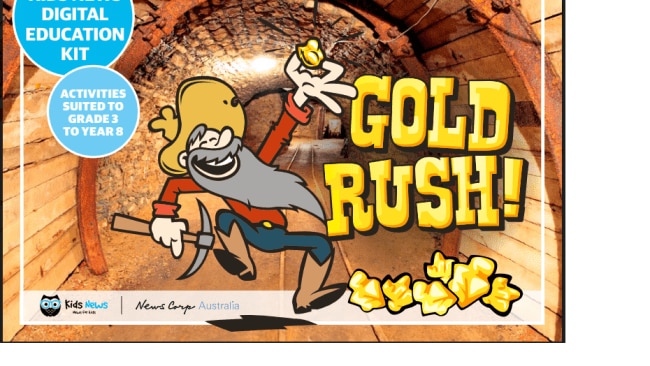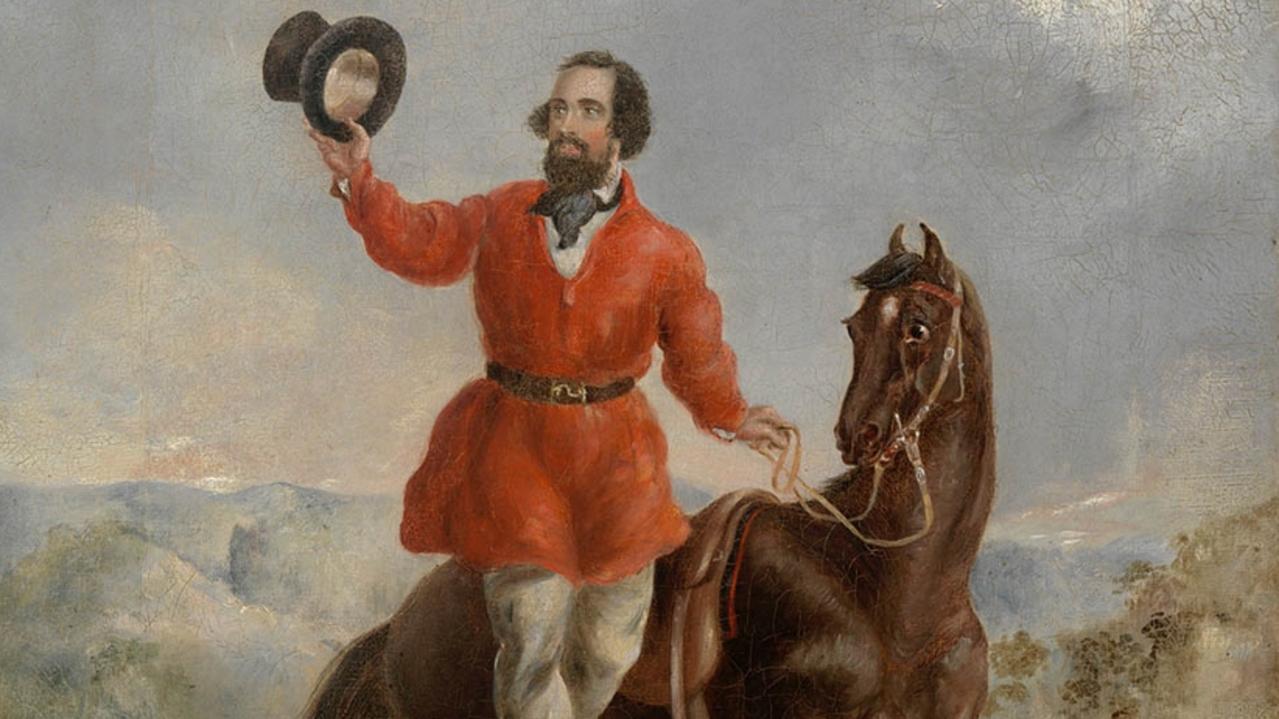Give us your gold: corrupt police and bushrangers roaming the forests made the goldfields lawless places
GOLDFIELDS JOBS: Who would be a policeman when you could find your fortune in gold? And who’d want to mine when you could steal from others? The goldfields could be lawless places
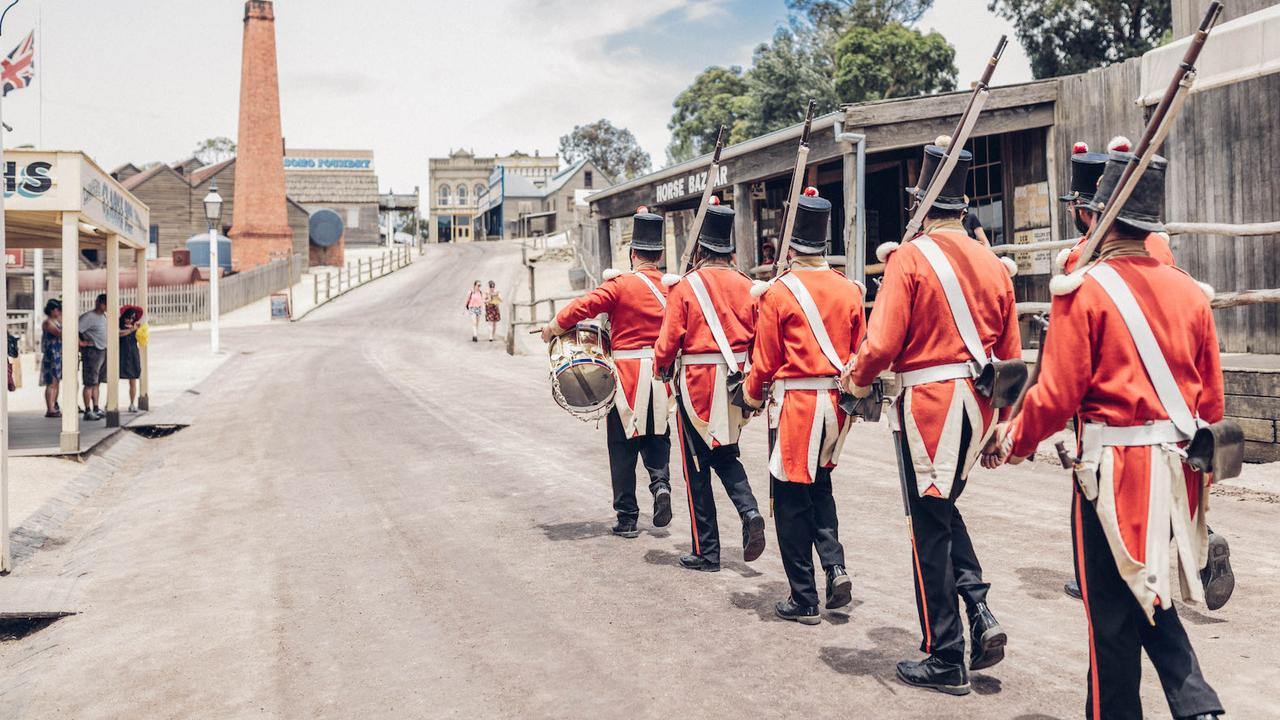
READING LEVEL: GREEN
THE JOB NO ONE WANTED
There was a terrible shortage of police in the early days of the Gold Rush. In July 1851, all but two of Melbourne’s 40 police resigned* and rushed to the goldfields.
The goldfields could be wild places, with lots of robberies, fights, poverty and instant, huge wealth. The people were an ever-changing mix from all over the world, including many ex-convicts who had been transported to Australia for breaking the law in the UK.
More police were needed, quickly. The desperate government increased police wages and took anyone who applied.
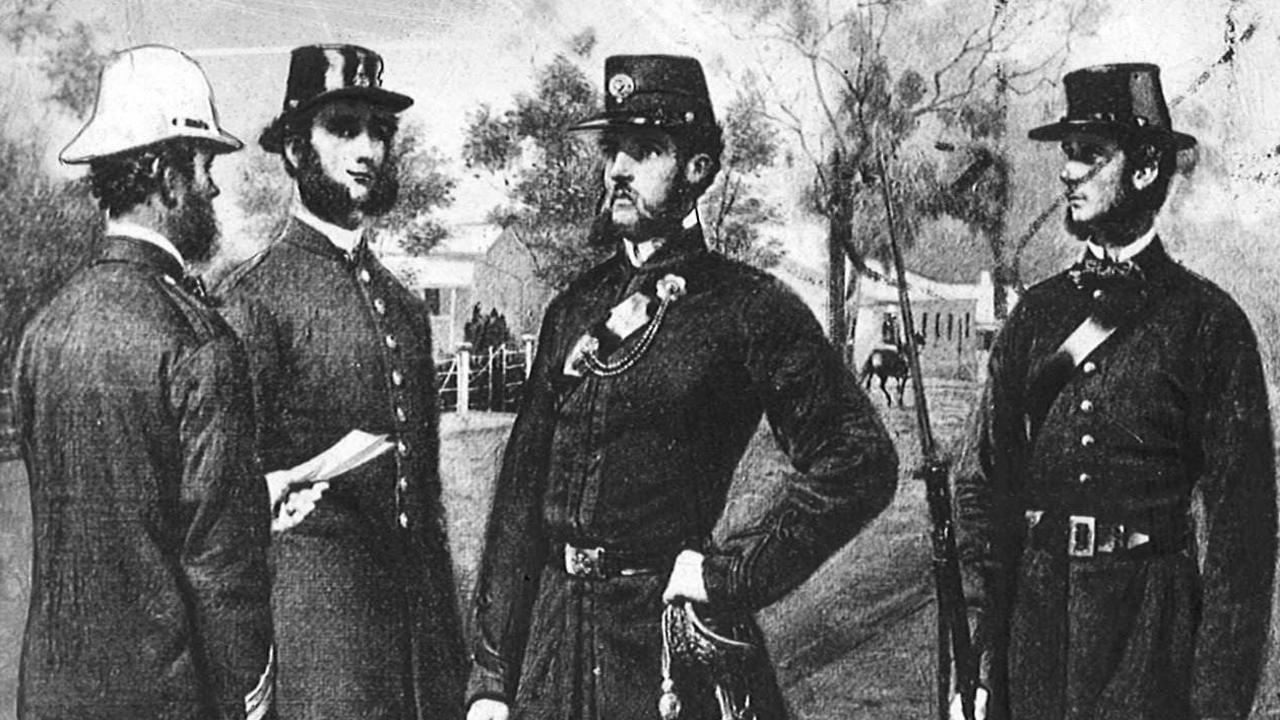
But who’d want to be a policeman on the goldfields? Unfortunately, many new policemen were either ex-convicts, very young or former soldiers who had worked in the convict jails of Tasmania.
The new police weren’t welcomed. The miners hated the police because they believed the laws the police had to enforce* were unfair. Many people also thought the police were corrupt, meaning they would ignore law breaking or arrest someone for no reason if they thought they could make money by doing so.
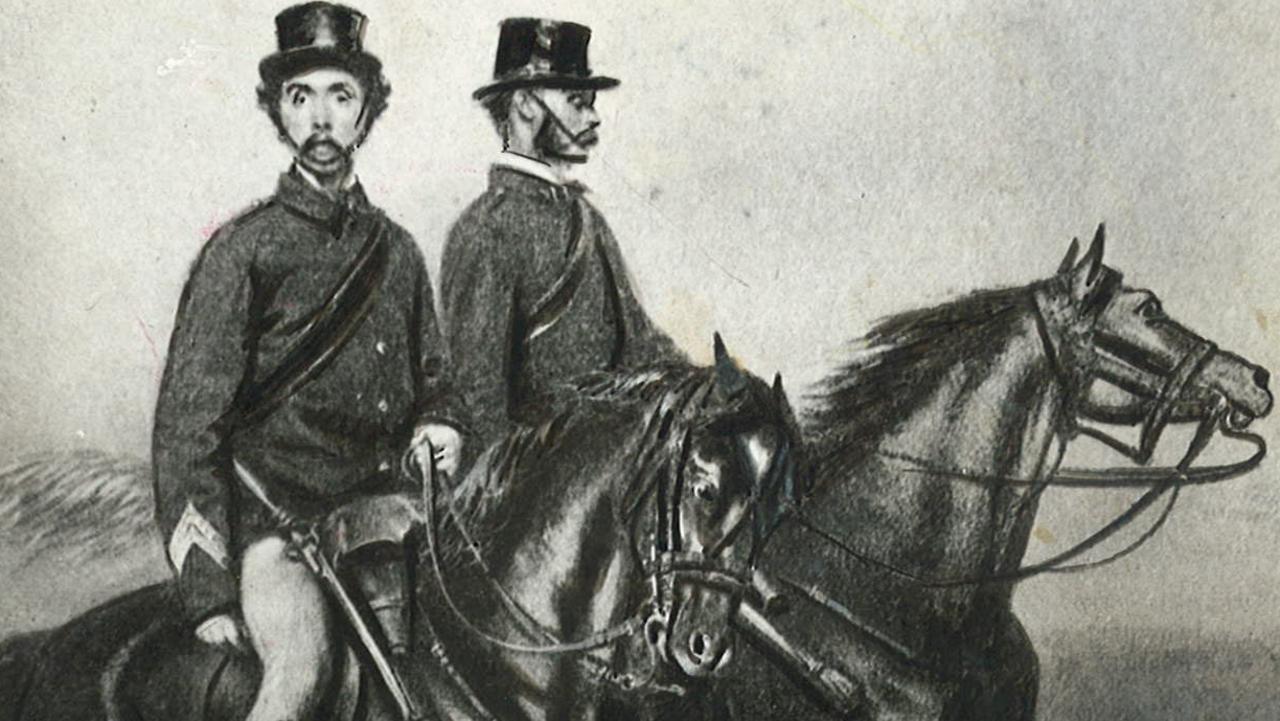
GIVE US YOUR GOLD!
Tales of a wild bushranger named Captain Melville made great gossip and exciting stories to read in The Argus newspaper in the 1850s. One story goes that he robbed two miners on the Ballarat road of £33, but gave them £10 so they’d have money for Christmas. Who knows how much of what was said and written about him was true and how much was exaggerated?
Captain Melville, whose real name was Frank McCallum, was a man with a terrible temper and everyone feared him — even his friends. There were many bushrangers robbing people and coaches travelling the roads from the cities to the goldfields. The bushrangers went by names like pirates, such as Black Douglas, Velvet Ned and Long Bill. But Captain Melville was the most famous.
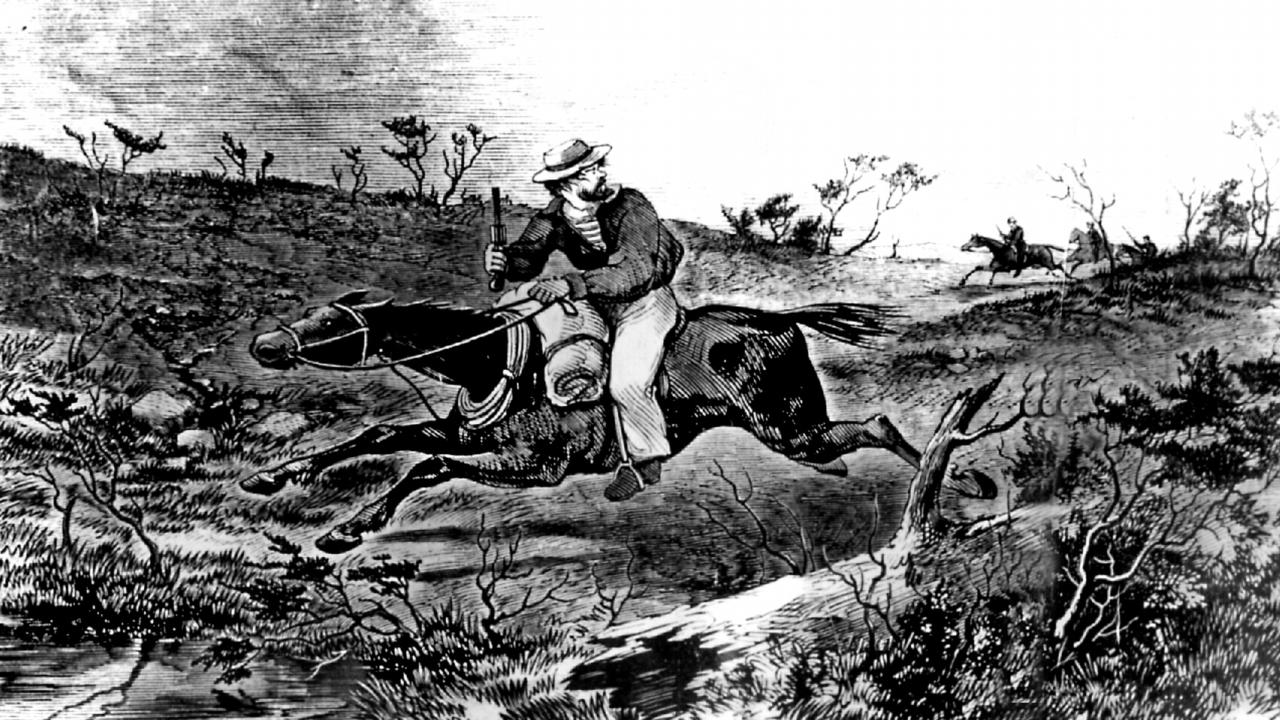
There were no banks in the early days of the Gold Rush, so if you were a thief, life was pretty easy. The road from Melbourne to Bendigo, for instance, was a rough dirt track through the bush, but men on horses and horse-drawn coaches carrying huge amounts of gold travelled it every day and it was pretty easy if you had a horse and a gun to stop in front of a coach or a traveller and demand all the gold you could carry and then disappear into the bush.
A goldfields visitor, Ellen Clacy, wrote in her 1853 book A Lady’s Visit to the Gold Diggings:
“ … no one intending* to turn digger should leave England without a good supply of firearms*. In less than a week, more than a dozen robberies occurred between Kyneton and Forest Creek.”
One of the most famous crimes of the Gold Rush was the robbery of the Nelson, a ship about to sail from Melbourne with gold worth £30,000 on board. Twenty-two men rowed out, boarded the ship and sailed it away. Only four of the 22 men were ever caught and the stories around the digging were that Captain Melville was to blame.
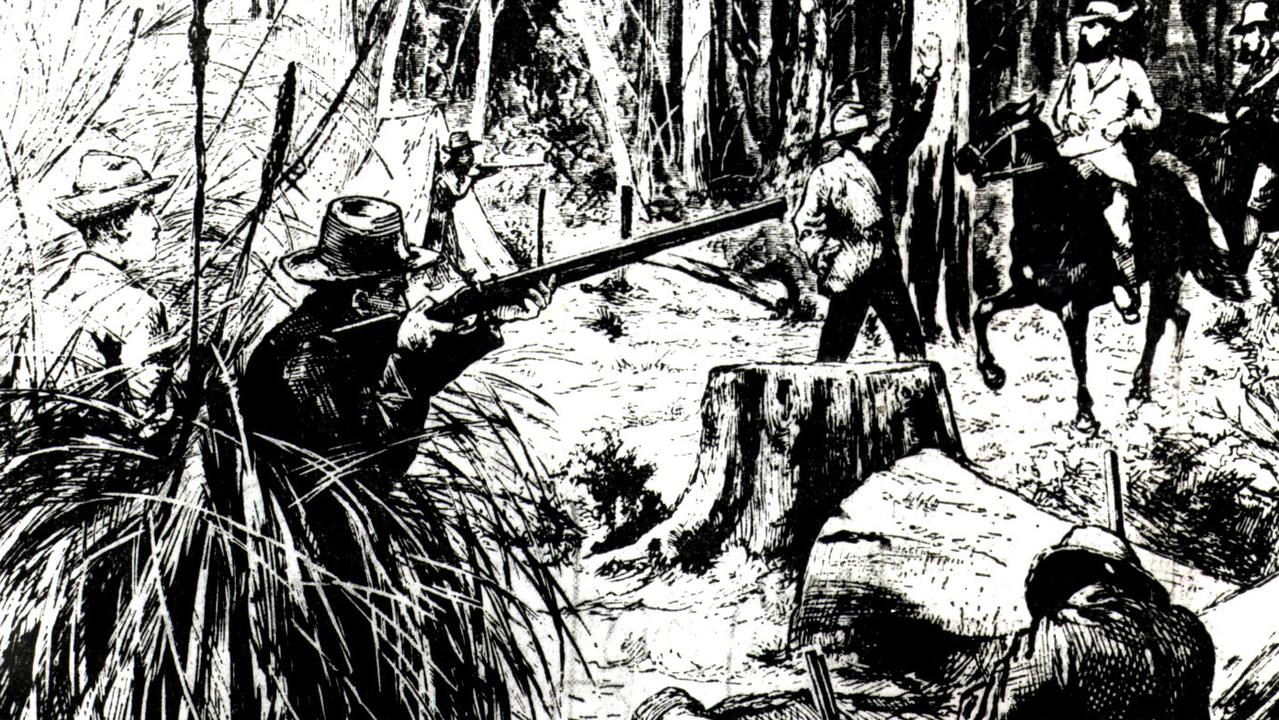
EXTRA READING
Making money but not mining for gold
Miracle cures and other crazy ideas
FOR ALL GOLD RUSH STORIES, click HERE
GLOSSARY
- resigned: left the job forever
- enforce: make someone follow the rules
- intending: planning to
- firearms: guns
LISTEN TO THIS STORY
25 CLASSROOM ACTIVITIES
For 25 classroom activities on this story and much more, go to kidsnews.com.au/goldrush to purchase the Gold Rush workbook for $20 inc GST.
SOURCES
- National Museum of Australia, nma.gov.au
- National Library of Australia, nla.gov.au
- State Library Victoria, slv.vic.gov.au
- State Library of NSW, sl.nsw.gov.au
- SBS, sbs.com.au/gold
- KidCyber, kidcyber.com.au/gold-rush-in-australia
- Growing up on the Australian Goldfields by Kimberley Webber, bit.ly/2nfbbqw
- Sovereign Hill, sovereignhill.com.au and sovereignhilledblog.com
